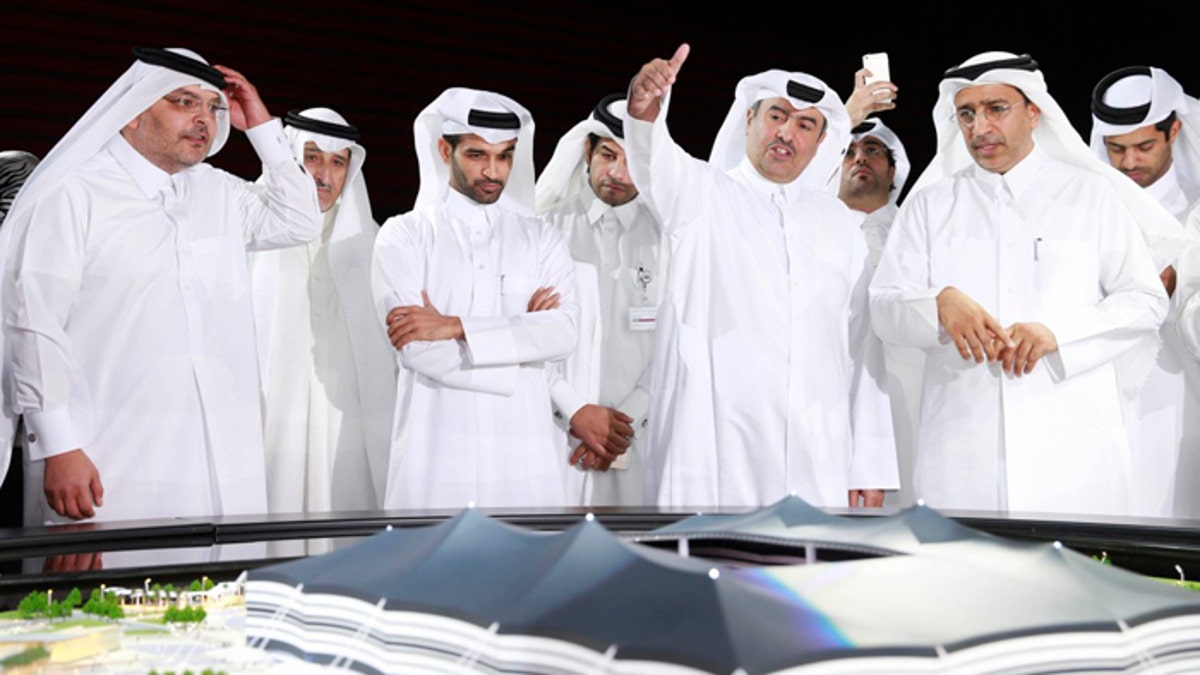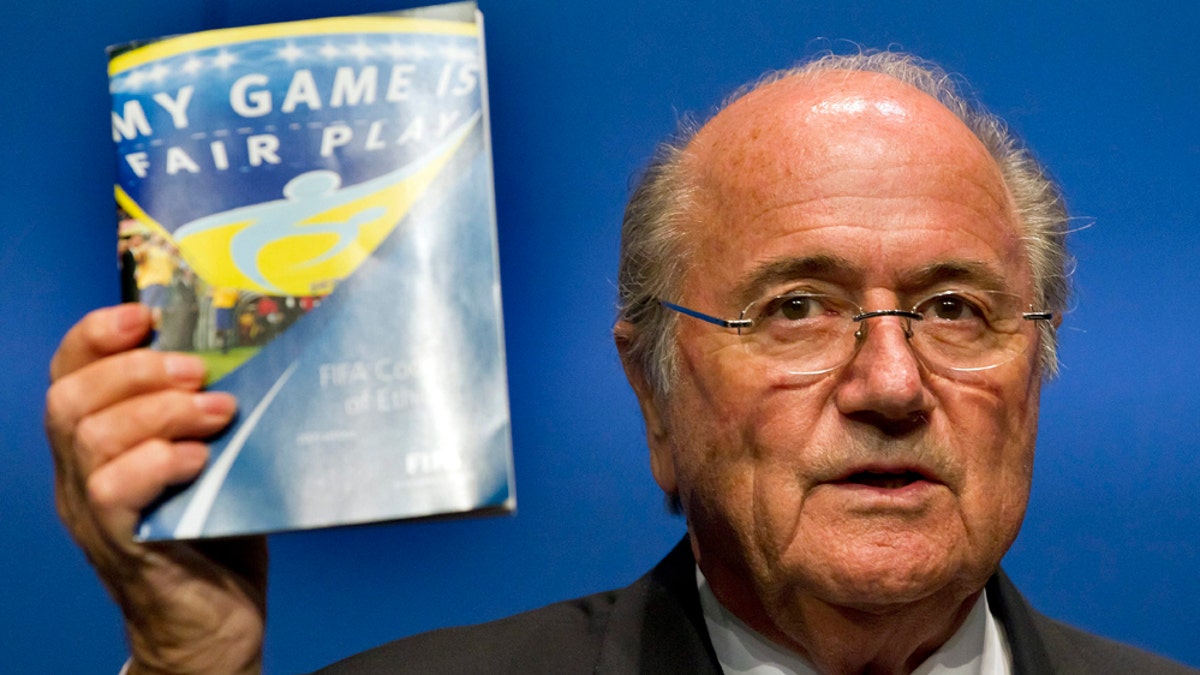
Qatar's 2022 World Cup organizing committee, shown here, has been accused of paying FIFA officials to win the bid to host the games, which would be played in the fall and winter due to hot weather. (Reuters)
By Frank Dell'Apa
SPECIAL TO FOXNEWS.COM
After taking over the presidency of FIFA in 1974, Joao Havelange turned soccer’s governing body into a mega-business by recruiting multi-national sponsors for the organization’s crown jewel, the World Cup.
Sepp Blatter, Havelange’s successor, followed the blueprint from 1998 until his shock resignation Tuesday in the wake of U.S. Department of Justice indictments and a pending investigation by Swiss authorities.
“But it can’t be snatched away just like that. Qatar has legally binding agreements. So, it would have to be something meteoric and substantial.”
And those same sponsors who filled FIFA’s coffers were likely a big part of the reason for Blatter’s downfall – and, along with it, a possible change in the site of the 2022 World Cup, set for Qatar.
But even pressure from sponsors would not be enough for the 2022 World Cup to be taken away from Qatar, or, for that matter, the 2018 event in Russia.
“They can’t do it lightly, there have to be compelling reasons,” said Boston-based Professional Soccer Advisors principal Steve Gans, who has authored World Cup bid documents. “That’s why it turns on the investigation – if they find fraud, that changes everything. If it’s true Swiss authorities are investigating and they find evidence of wrong doing there is every chance it could be reversed.

FIFA President Joseph S. Blatter holds the FIFA Code of Ethics while talking to the media during a press conference in Zurich, Switzerland, Monday, May 30, 2011. FIFA President Sepp Blatter says "great damage" has been done to world football's governing body by bribery allegations against two senior executive committee members but insisted there was no problem with awarding the 2022 World Cup to Qatar. (AP Photo/Keystone/Alessandro Della Bella) GERMANY OUT - AUSTRIA OUT -
“But it can’t be snatched away just like that. Qatar has legally binding agreements. So, it would have to be something meteoric and substantial.”
Allegations of bribes and payoffs have surrounded the awarding of the World Cup to Qatar. But such practices seem to be business as usual for FIFA, judging by recent revelations. Days before Blatter’s resignation, South African organizers said they were required to make a $10 million payment to ensure the country would play host to the 2010 World Cup, the money going through FIFA general secretary Jerome Valcke.
Corruption appears to be endemic within FIFA, making the organization an easy target for investigators. But FIFA has been mostly left to police itself, until the U.S. Dept. of Justice made a raid on the organization in Zurich last week.
The image of FIFA and its sponsors (there are six “FIFA Partners” – adidas, Coca-Cola, Emirates, Hyundai-Kia Motors, Sony, Visa) have taken a beating as high-level officials have been arrested in conjunction with payoffs for television rights fees for the 2016 Copa Centenario, to be held in the U.S.
As one source noted, “the business world always moves faster than the legal world,” so doubtless sponsors have been pressuring Blatter to effect changes to improve FIFA’s image, and quickly.
In Blatter’s resignation speech, he claimed he had been prevented from implementing attempts to reform the organization, and said now major alterations would have to be made, starting with the executive committee, which awards the World Cup.
A possible successor to Blatter is Michel Platini, a former France national team and Juventus star, who is president of UEFA, European soccer’s governing body. Platini voted for Qatar as a 2022 World Cup host, but has since stated that if irregularities were found in the country’s bidding, the vote should be retaken.
Qatar was named World Cup organizer in 2010, and has since had to contend with problems related to fast-tracking infrastructure projects and stadium building, plus the logistical difficulties of staging the planet’s biggest sporting event in a tiny country in the intense heat of the Middle East. The living conditions of migrant workers have led to questions regarding Qatar’s human rights record.
Historically, FIFA has made pragmatic decisions regarding World Cup rights. For many years, the unofficial policy was to alternate the event between Europe and the Western Hemisphere. The U.S. was never a serious contender as a site until Havelange pushed for the country to be the 1994 host, based on strong attendance for soccer in the 1984 Olympics, plus the fact it was where many of FIFA’s major sponsors at the time were located.
The 1994 World Cup in the U.S. was the first of FIFA’s attempts to spread the soccer word outside the traditional bastions of the game, and also signaled a big increase in the value of the property. The World Cup went to Asia for the first time, with the 2002 event Japan and South Korea, then to Africa with the 2010 tournament in South Africa. FIFA planned to expand its frontiers to Eastern Europe with the 2018 World Cup in Russia and the 2022 World Cup in Qatar.
But FIFA seems to have lost its way. Now, FIFA could be in danger of losing sponsors, and someone has to pay the price. So far, it has been FIFA executives. Next could be World Cup host countries.
Frank Dell’Apa is among the leading soccer experts in the U.S. Dell’Apa was soccer columnist for the Boston Globe and has covered every World Cup since 1990.
